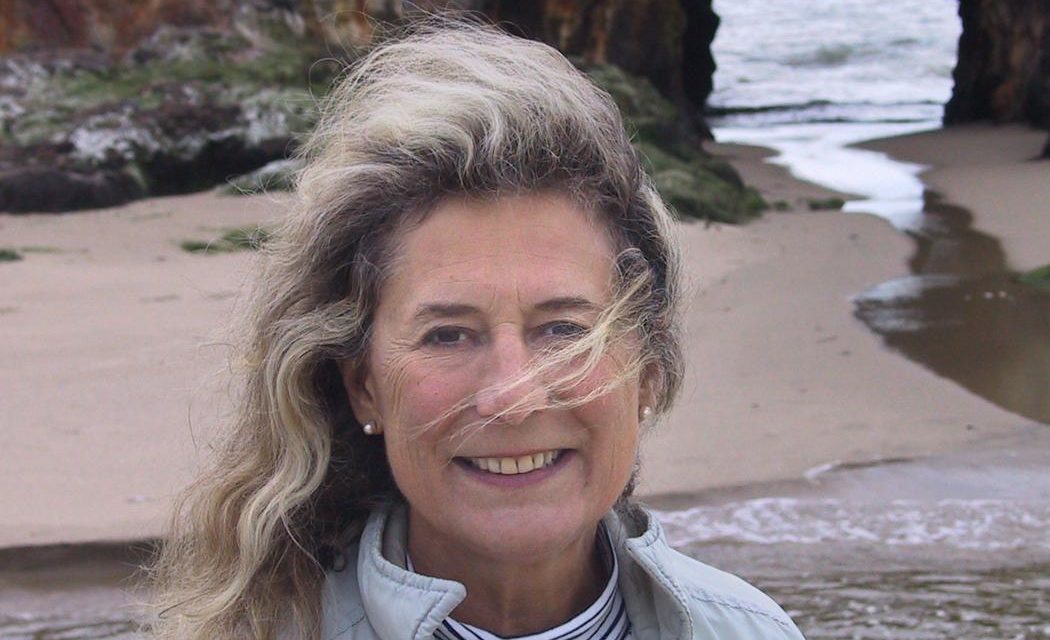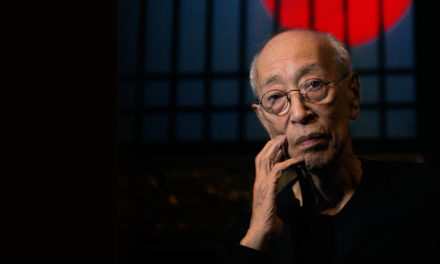When one wants to begin a career in theatre professionally, what tactic could they use? As an Iranian artist who came to the US, I was struck by the many theatres that were dedicated to world theatre in various genres, cultures, races, and so forth. Thinking of numerous theatre companies that produced mainly translations, I came across Intiman Theatre. Margaret Booker (b. 1942), a graduate of Stanford University and a Fulbright scholar, founded Intiman Theatre in a tiny 65-seat theatre in Kirkland, WA, in 1972 and named it Intiman after Strindberg’s Intima Teatern. (i) In what follows, I advise emerging theatre-makers using Intiman Theatre as a case study.
One: Have a distinct and strong voice.
Booker spent two years in Sweden (1967–69), which profoundly influenced her because her perspective changed dramatically studying with Ingmar Bergman and Alf Sjoberg at the Royal Dramatic Theatre. She also worked with Bergman as his assistant and learned a great deal from him. (ii) I spoke with her 45 years after her theatre began.
She recalled, “I was trained with one of the greatest directors of all time in Sweden. So, it put me in the Scandinavian category. So, I knew Scandinavian plays. I was trained on Ibsen and Strindberg and all of those people.” (Ibid)
To create her distinct voice, she decided to focus on classic works on which she had been trained. Therefore, she directed plays from Ibsen, Strindberg, and Brecht. In the first season (1972–73), Booker directed Ibsen’s Rosmersholm (trans. Michael Meyer), Strindberg’s Creditors (trans. Walter Johnson), and Carl Sternheim’s The Underpants (trans. Eric Bentley) at the Creative Arts League.
The critic Edgar Boak acknowledged the strong voice of Booker’s company, mentioning that “Intiman is a company because the director’s hand is so sure, so strong, so tender, like a master gardener, that the actors seem to create from within the fences of her mind.” (iii)
Looking at all the choices of the plays and the management of the theatre (moving from Kirkland to Seattle and hiring staff, etc.), it became conspicuous that Intiman Theatre was mainly Booker. The personal characteristics of controlling the artistic team and giving enough room to everyone in the ensemble to collaborate are evoked from the documented information in the reviews and the most recent interview. Similar to the first season, she chose classic plays by European playwrights whom she deeply valued for the third year (second season). Booker brought in a guest director, Andrew M. Witt, the managing director of A Contemporary Theatre, to direct George Tabori’s Brecht On Brecht. The play was originally produced off-Broadway in the 1960s. The cast included Lucy Rush, J. V. Bradley, Rick Knisely, and Ruth Markoe. Basically, the reviewers mentioned in this essay describe neither the productions nor the audience reception. Nonetheless, their bold ideas/statements could be considered the opinion of a single audience member.
For instance, the critic Valerie Winslow said, “Brecht On Brecht is a professional-caliber production.” (iv)
Regarding the choice of play, she commented that it is astute to produce such a play because “many Neil Simon–esque plays were produced on the East Side.” (Ibid) The play is “a collection of songs, poems, songs, and scenes synthesizing Brecht’s thoughts on philosophy, war, politics, life, and the theater.” (v) Basically, Intiman Theatre offered diversity within the broad scope of the small theatres in Seattle, and that is also why it could bring audiences from Seattle to Kirkland for the shows. Therefore, the repertoire helped them endure their work because no other theatre in Seattle produced the favorite plays. Another implication is that an artist should distinguish him/herself from others by continuing to point out his/her niche: in the case of Booker, her training in Sweden was the key to establishing herself in theatre society. The choices of the plays, European drama, demonstrate her distinct and strong voice.
Two: Create your audience over time.
Carole Beers wrote a piece titled Theatre In Search Of An Audience in the Seattle Times in 1972 on Booker’s debut play, Ibsen’s Rosmersholm.
In that piece, Booker mentioned, “If we do well, such as filling half of the house during the ten-show run, we plan to go into some kind of four-play repertory season. Then perhaps, add children’s plays–they’re great for revenue, and the community always needs good children’s theaters.” (viii)
Therefore, the first audiences played a crucial role in continuing her career.
“I didn’t know about the demographics. I would say that my audiences were neighbors and friends of neighbors,” Dr. Booker told me by phone. (Booker, 2017)
Thus, she did not target any particular immigrant community like Scandinavian immigrants. (vi) Since she wanted to work ultimately, she reached out to anyone to fill the hall every night. She could find a cast and crew to work with her and enough audiences to continue her work. Additionally, audiences were invited in various ways; for example, her ex-husband, John Booker, was a professor in the Geo-Physics Department at the University of Washington, which helped her to invite people from the university. Although I could find no information about the financial circumstances of the production either as a management record or in any review or note, I could conclude that the production was successful enough for Booker and the company to continue on their path, because her company began a repertoire and the theatre was officially incorporated as a non-profit organization in 1973. That year, she directed her second production, Strindberg’s Creditors.
In the review Intiman Does Solid Work In Creditors, Ed Barker contends that “Creditors, a bitter comedy by August Strindberg, gets thoughtful direction and excellent acting in a production staged by Intiman in Kirkland’s Creative Arts League Building.” (vii)
Looking at the beginning of Intiman Theatre in Kirkland, one could observe that the small group of audience members that was mainly friends of the cast and crew grew to include neighbors, and then expanded to theatergoers in Kirkland and Seattle. The development of audiences took place during a period when they moved from smaller places to bigger spaces with more seats. In other words, it began in the margin (Kirkland) and moved toward the center (Seattle).
Three: Use your unique background.
When I asked Dr. Booker what prompted her to produce Scandinavian plays, she responded, “my background.” (Booker, 2017) “We did Rosmersholm because of my background in Scandinavian theatre and I could translate, which meant there were no royalty costs. At heart, I am internationalist and my theater training was in classics.” (Ibid) The repertoire was rooted in her training. As she brought her background to the choice of plays, she developed certain audiences for the classics. Unfortunately, the reviews do not note what kinds of audiences attended the productions. Nonetheless, she acknowledged that she had a wide range of audiences: from her neighborhood friends, neophytes, to theatre experts. (Ibid) The European plays brought fresh air to the theatre in Kirkland, and Booker believed that they “free[d] us from the limitations of our training in realism.” (viii) Looking at the reviews chronologically, one observes that her productions improved; as a result, the critics’ and patrons’ responses shifted toward enthusiasm. For instance, the harsh tone of Wayne Johnson in his early notes shifted to a tone of excitement. The last play in the company’s third year was George Bernard Shaw’s Candida.
Johnson expressed his fascination: “the show is one of the most accomplished, fascinating, entertaining, stimulating, and affecting theater pieces to be presented on a local stage in a long time.” (ix)
Therefore, Booker employed her knowledge and expertise in classics and the European theatre to establish herself.
Four: Cooperate with established cast and crew.
An incentive that worked for Intiman Theatre was to bring in well-known cast members, like John Gilbert and Denis Arndt, who brought their reputations to the shows. (Booker, 2017) Such actors agreed to work for Booker because they wanted to experience new materials and, more importantly, trusted her expertise. Basically, Booker formed a semi-professional cast that participated in each production. The good acting company, “John Gilbert, Denis Arndt, Carmi Boushey, Christine Healy, Jean-Marie Kinney, and Mark D. Murphey,” distinguished her theatre from other major theatres in the region. (x)
For instance, the critic Roger Downey cherishes the actors’ work in Creditors: “Denis Arndt and James Rice bring out the strong harmony between the surface contradictions; Arndt strong, aggressive, and hypnotic man as macho, and Rice suggestible, vulnerable, and weak, both in the end equally helpless before the woman.” (xi)
Another instance is Johnson’s excitement in his note about Uncle Vanya because “two of Seattle’s best and most popular actors: Ted D’arms, who play[ed] Vanya, and John Gilbert, who play[ed] Astrov,” had worked together and the play was a tragicomedy. (xii) The opening night sold out, and 14,000 season tickets were sold out prior to the opening, which suggested that Intiman Theatre had found its own patronage or a community of audiences.
Five: Employ low-budget, minimal décor.
The critic John Thompson espoused Booker’s choices of minimal décor and the audience-performer’s interactions in Creditors: “the play neither requires or uses a recognizable set; instead, the actors move among nondescript blocks, used for whatever is suggested by the action.” (xiii)
A minimal décor required little preparation; thus, fewer human and financial resources were required. A low-budget, minimal décor greatly benefits a neophyte ensemble. Thinking of a low-budget production, Booker did not even rent a theatre in the beginning of her career. She found a “dead building and people were delighted that someone was going to use it and we cleaned it up.” (Booker, 2017) Therefore, she could manage to pay for all aspects of the productions and pay the cast and crew.
Six: Listen to your audience.
Although Creditors was mainly well received, there were several issues with the production’s dramaturgy. Booker did not adapt the work for current audiences and presented the translation of the original play without alteration. Some reviews of the play suggested that it could have been produced better if contemporary American culture had been considered.
For instance, harsh criticism came from Susan Godfrey: “the play itself is a psychological drama mislabeled as black comedy. The only laughter comes from women in the audience at such trite phrases as ‘Women never like each other,’ ‘A woman’s role is receiving, not giving,’ and such lines probably taken seriously in Strindberg’s day but wholly ridiculous now.” (xiv)
Booker drew insight from Godfrey’s meticulous observation, considering American culture in her next production. In May 1974, Intiman Theatre opened Miss Julie as a part of the May Festival. (xv) The critic Maggie Hawtharn observed that Booker’s translation was idiomatic and contemporary, which made the play real and up-to-date. (xvi) After that, Booker listened more shrewdly to her audiences and sought to consider them carefully when she chose plays. The next play that Intiman Theatre produced at the Cornish School was Mrozek’s Tango. Wayne Johnson, in his review, Intiman Actors Trip Fantastic In Tango, wrote that the play was part of Polish absurdist drama and that Booker’s directing made it very funny. (xvii)
Teresa Allen wrote, “In Tango, we are faced with a new generation of adults who have become so liberated through years of relaxed conversation that they respond to life with nonchalant indifference.” (xviii)
She considered the new generation in terms of their tastes and needs.
Seven: Move and grow.
In 1974, Booker was interviewed by Jack Leahy and observed that “Seattle needs more theater. This city has one of the healthiest situations for theater in the country. The more theater we have, the better theater we get. At present, I don’t think we have enough.” (xix)
At that time, she wanted to find a venue close to Seattle audiences because they could not sell enough tickets for their productions at the Creative Arts League. Consequently, she moved to the Cornish School of Allied Arts in Seattle to present productions there. Also, the priest at St. Joseph’s Catholic Church gave her rehearsal rooms in the church’s social hall and gym. At the Cornish School, Booker directed Strindberg’s Miss Julie (trans. Margaret Booker), Slawomir Mrozek’s Tango, and George Bernard Shaw’s Candida. The school community became part of the fixed audience for Intiman’s productions, and Booker said, “This is a grass root starting!” (Booker, 2017) Therefore, moving to a new, bigger place played an important role in expanding the theatre’s audiences. Next, the theatre moved to a new venue. The Seattle Arts Commission wanted to help Booker, and Peter F. Donnelly offered her use of Second Stage during the summer of 1975. Intiman Theatre performed at Seattle Repertory Theatre’s 350-seat Second Stage in downtown Seattle from 1975 to 1984. Chekhov’s Uncle Vanya (trans. Christopher Hampton), George Bernard Shaw’s The Philanderer, and Ibsen’s Hedda Gabler (trans. Margaret Booker) were produced at Intiman Theatre in 1975.
Eight: Have a comic tone.
Although a comic tone might not be appropriate for many projects, Booker had a great experience attracting more audiences using a comic tone in her productions. Her first plays had a serious mood. Then, she altered the atmosphere of her plays by choosing Carl Sternheim’s (An expressionist German playwright) The Underpants for its comic mood, which attracted more audiences. (xx) Intiman Scores With Satire was the title of Carole Beers’ note promoting the production. (xxi) Although the play was satirical, the characteristics of intensity, battle of the sexes, and subjectivity challenged audience perceptions.
Downey, in his review, stated that “[the characters] aren’t simple at all: in the midst of the most farcical situations, they suddenly begin to declaim Nietzsche, or read the newspaper aloud, […] what they want is often as obscure to them as it is to us.” (xxii)
A comic tone can attract more audiences with no fear of being unsophisticated.
Nine: Pay attention to the theatres and the productions around you.
Booker quoted Gregory A. Falls, one of the founders of A Contemporary Theatre: “Theaters grow like grapes and clusters.” (Booker, 2017)
She said that his theory of grapes and clusters was the thing that Intiman Theatre benefited from because her theatre grew among many other theatres and that such a mass of theatres attracted a talent pool and thus the theatre flourished. (Ibid) Therefore, the existence of several theatres in Seattle, like the Empty Space, the Bathhouse Theatre, A Contemporary Theatre, Seattle Repertory Theatre, and Pioneer Square Theatre, was extremely resourceful to Intiman Theatre because they influenced each other. The importance of numerous theatre artists and the growth of theatre venues and productions championed and facilitated the growth of Intiman Theatre.
Ten: Be disciplined and serious.
It might be true that many emerging ensembles could not produce their ideal productions because of various limitations and obstacles at the outset. Yet, when a production is presented seriously, audiences can see the amount of effort devoted to it.
For instance, although the Seattle Times critic Wayne Johnson did not like Booker’s debut play, he concluded his review—Intiman Opens With Ibsen Play— positively: “Intiman is a serious company of serious theater workers who deserve support, so that they can go on to realize their ambitions.” (xxiii)
Therefore, being disciplined is a sign of professionalism, and critics and experts pay careful attention to such signs.
In a nutshell, the ten pieces of advice offered here would help an emerging artist begin their career. There are countless instances of artistic paths. This essay about Booker is just one example of a theatre-maker. If one could employ the aforementioned methods, they could have a fertile conversation with colleagues and other theatre artists in their community. It is crucial for an emerging artist to have a sociopolitical and cultural conversation with their society and even with the world. To follow this guidance, an artist must be resilient and take risks. To achieve such characteristics, they must have a passion for storytelling. Although one might counter-argue that the items listed above may only work for an artist in the past and that contemporary artists may need different advice, I would emphasize again the notion of storytelling, which fuses artists in either past or present. The ten pieces of advice should help artists find their own voice and place in the industry regardless of their gender, ethnicity, culture, etc. This essay not only helps emerging artists with the formation of their own theatre, using the case study of Booker/Intiman Theatre, but also informs them about strategies they can use to break into the theatre industry.

Book: “Lillian Hellman And August Wilson: Dramatizing A New American Identity” cover photo by Chris Bennion.
Notes
[i] Intiman means intimate in Swedish.
[ii] I interviewed Dr. Booker by phone on November 26, 2017 (cited in the text as Booker, 2017), and she recalled such information.
[iii] Edgar Boak, Tango And Ladies-In-Waiting, A Masterful Garden And A Machine, The Seattle Sun (Seattle, WA), October 16, 1974.
[iv] Valerie Winslow, Bertolt Brecht’s Alive And Well In Kirkland. Winslow apparently wrote for either a Bellevue or a Kirkland paper; in 1974, it was probably either the Bellevue American (1930–76) or the East Side Journal (1918–76). The papers merged in 1976 as the Daily Journal-American (Bellevue); the article was written in 1974 and is archived in the University of Washington’s Special Collections.
[v] Intiman Bring ‘Brecht’ To CAL, East Side Journal (Seattle, WA), February 6, 1974.
[vi] Since Intiman Theatre produced Scandinavian plays, I assumed that the theatre targeted Scandinavian immigrants in Washington. I learned that this assumption was false after interviewing Booker and reading reviews of her early works.
[vii] Ed Barker, Intiman Does Solid Work In Creditors, Seattle Times (Seattle, WA), April 23, 1973.
[viii] Margaret Booker, Seattle’s Intiman Theatre, Scandinavian Review (Los Angeles, CA), Spring 1984 [she refers to the American realism].
[ix] Wayne Johnson, Candida: A Marvel! The Seattle Times (Seattle, WA), November 8, 1974.
[x] Margaret Booker, Intiman Theater Brochure, 1973.
[xi] Roger Downey, Creditors, A Painful Look At Our Weakness, Panorama (Seattle, WA), April 21, 1973.
[xii] Wayne Johnson, Intiman To Open Uncle Vanya, The Seattle Times (Seattle, WA), August 7, 1975.
[xiii] John Thompson, Creditors Production Credit To Cast, The Argus Newspaper (Seattle, WA), April 13, 1973.
[xiv] Godfrey, Susan, Applause Due Creditors, Northshore Citizen (Bothell, WA), April 25, 1973.
[xv] The Venue at the Cornish School had only 200 seats, and the play was about the relationship between a man and woman: Julie and Jean had multiple social and sexual motivations.
[xvi] Maggie Hawtharn, Cornish Festival Opened, Seattle Daily (Seattle, WA), May 4, 1974.
[xvii] Wayne Johnson, Intiman Actors Trip Fantastic In Tango, The Seattle Times (Seattle, WA), October 11, 1974.
[xvii] Teresa Allen, Polished Intiman Group Presents Tango,” University of Washington Daily (Seattle, WA), October 13, 1974.
[xix] Jack Leahy, More—And Better—Seattle Theater, Post-Intelligencer (Seattle, WA), May 5, 1974.
[xx] J. V. Bradley and Jean Marie Kinney, the well-known cast, performed in Sternheim’s The Underpants.
[xxi] Carole Beers, Intiman Scores With Satire, Seattle Times (Seattle, WA), November 13, 1973.
[xxii] Roger Downey, Intiman Theater The Underpants Excellent Although Unfamiliar, Everett Herald (Everett, WA), November 10, 1973.
[xxiii] Wayne Johnson, Intiman Opens With Ibsen Play, The Seattle Times (Seattle, WA), December 19, 1972.
Thanks to Todd London for his insightful advice!
This post was written by the author in their personal capacity.The opinions expressed in this article are the author’s own and do not reflect the view of The Theatre Times, their staff or collaborators.
This post was written by Ali Pour Issa.
The views expressed here belong to the author and do not necessarily reflect our views and opinions.


















